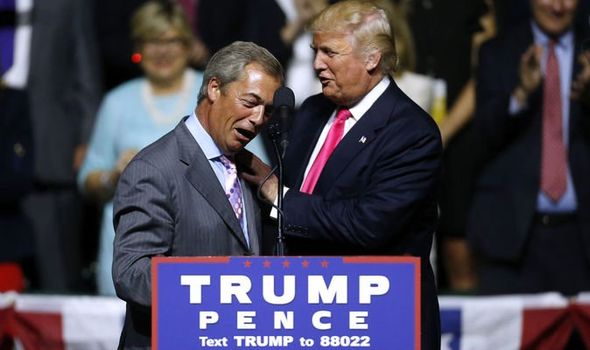It is no secret that President Donald Trump thinks the UK and the US will enter into a ‘phenomenal’ trade deal. Mike Pompeo, the US Secretary of State, believes that whenever Brexit eventually happens, the US will be ready ‘pen in hand’ to sign a trade deal at the earliest possible time.
Brexiteers will also be keen to make any deal work, as the US-UK trade deal was a key promise made to the public during the campaigning for the 2016 referendum. Promises of a prosperous and mutually beneficial trade deal between the two nations were put forth by the Leave campaign, alongside the promise that the UK will be free from the rules and regulations of the EU.

What Trump and Brexiteers have not factored is opposition to the trade deal due to one of the most controversial aspects of the Brexit thus far – the Irish backstop. The backstop is a contingency plan which ensures that there is no ‘hard border’ between Northern Ireland and Ireland. It is commonly believed that if there is a hard border between the two countries, we will see unrest in the two countries and a return to ‘the troubles’.
Nancy Pelosi, Speaker of the house, has recently told Irish Parliament that “if the Brexit deal undermines the [Good Friday Agreement], there will be no chance of a US -UK agreement.” This isn’t a new sentiment, Pelosi has gone on record on several occasions to make clear that any Brexit which threatens peace in Ireland/Northern Ireland will result in the House of Representatives moving to block the trade agreement. What this means is that if Boris Johnson, current Prime Minister of the United Kingdom, continues with his plans to head towards a no-deal Brexit (which almost guarantees a hard border), the UK may be left without a trade deal with the EU and the US.
Pelosi’s sentiment is likely to be shared with many American politicians. The Irish diaspora has a heavy influence in the United States (according to the US Census Bureau, 10.1% of the American population is Irish or of Irish descent) and at least five American Presidents were of Irish descent (including John F Kennedy and Barack Obama). So it makes sense that Irish interests will be considered and protected in US relations with the UK.
Brendan Boyle, a democrat in the house of representatives, also referred to a quick trade agreement between the US and UK as a ‘fantasy’, making it clear that the trade committee is focused on the US-China and the US-Mexico-Canada trade deal and will not ‘drop everything’ for a ‘market of 60 million people.’
It seems that regardless of whether the United Kingdom leaves the EU with or without a deal that considers the Irish border, it faces an uphill battle to quickly come to an agreement on a US-UK trade deal.


